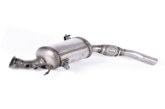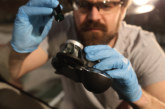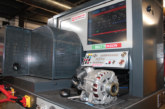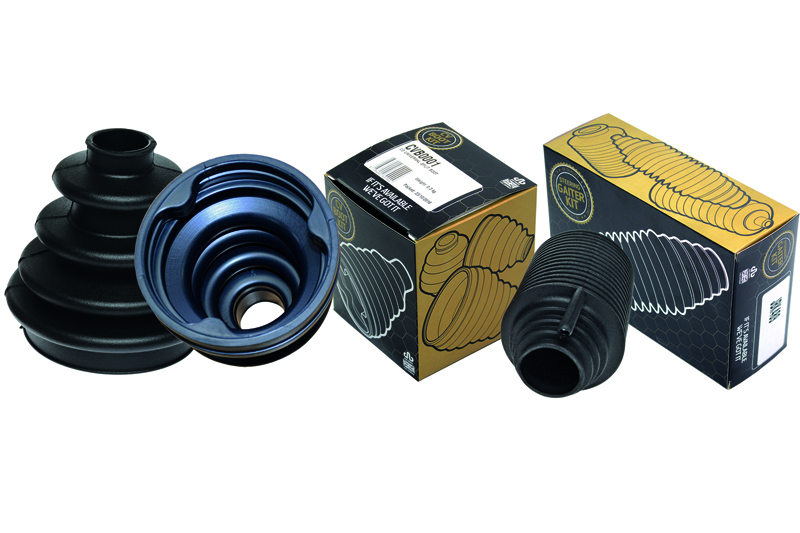
Is this the end of the universal? PMF discusses current trends with Just Boots’ CV boot specialist Dale Holmes.
Constant-velocity (CV) joints ensure power from a vehicle’s transmission drives the wheels at a constant velocity. The importance of keeping the CV joint constantly clean and lubricated is crucial. CV joints protect the axle; CV boots protect the CV joints.
The CV boot keeps vital lubricants inside the CV joint and harmful contaminants out. When a boot becomes compromised by a tear or crack, the CV joint is no longer protected and becomes exposed to a critical failure.
When the boot doesn’t fit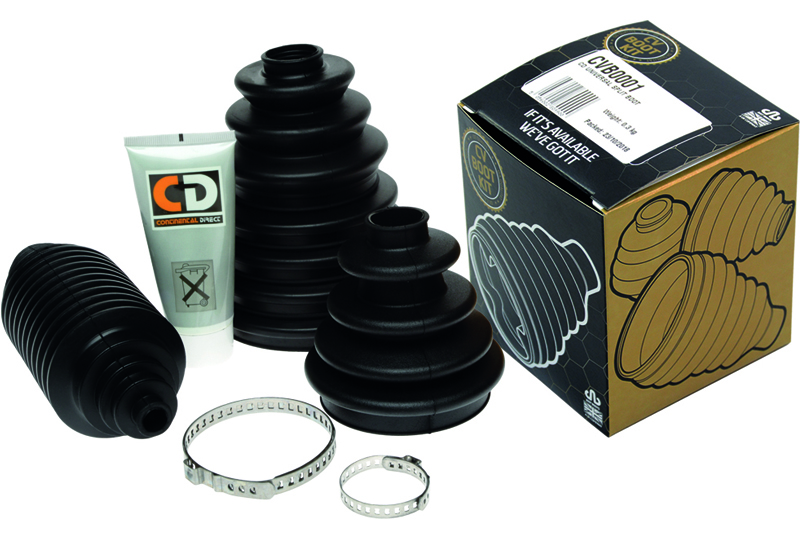
There are a growing number of situations where a universal boot won’t do the job.
Trilobal boots are in demand, with the majority of new vehicles featuring tripod style CV joints. Recently, manufacturers have produced vehicle specific trilobal CV boots that are unique to a particular model. With the off-side driveshaft tending to be the longer bar and experiencing greater stresses, manufacturers have strengthened them by increasing the thickness of the metal. This means that many inner trilobal CV boots are now handed. An example is the Volvo V50, in which the bar for the off-side is 9mm thicker. CV boots for the Mini are also handed. Factors are missing out on added revenue by not keeping enough of a range of trilobal boots.
The method of using part of an old original trilobal boot as a sealing ring and combining it with a new universal boot exists, but achieving this successfully in-situ is difficult. All greasing, gluing and fitting must be done in position without cross contamination, while over-tightening can cause distortion to or movement in the position of the old boot part. Failure in this type of boot fitment may create a warranty issue. Though more expensive, a brand new specific trilobal CV boot offers the most secure and trustworthy seal, and is the choice of many reputable businesses.
Plastic boots have also become common as manufacturers seek to meet quotas on recyclable parts. However, impact damage from road debris can cause plastic boots to tear.
Inferior quality stretch boots are currently being sold in the UK aftermarket. Some reports state that brand new boots can be torn by hand, which shouldn’t be possible with a properly produced rubber boot. There are even cases of boots failing within only five months.
Aftermarket answers
Because an increased number of universal boots are flailing, awareness of the alternatives within the aftermarket is of great value to factors. However, developments in original boots are raising problems for suppliers in the aftermarket, with some catalogue listings proving to be erroneous.
Solving vehicle variations drives research and development at Just Boots, with new solutions being introduced to the market. Two examples are the Volvo XC70 and XC90. These vehicles feature a telescopic driveshaft whereby a universal boot wouldn’t suffice. The only option available from the dealer is a complete driveshaft. After a period of development and testing, Just Boots are now selling a specific fit CV boot for these applications.


